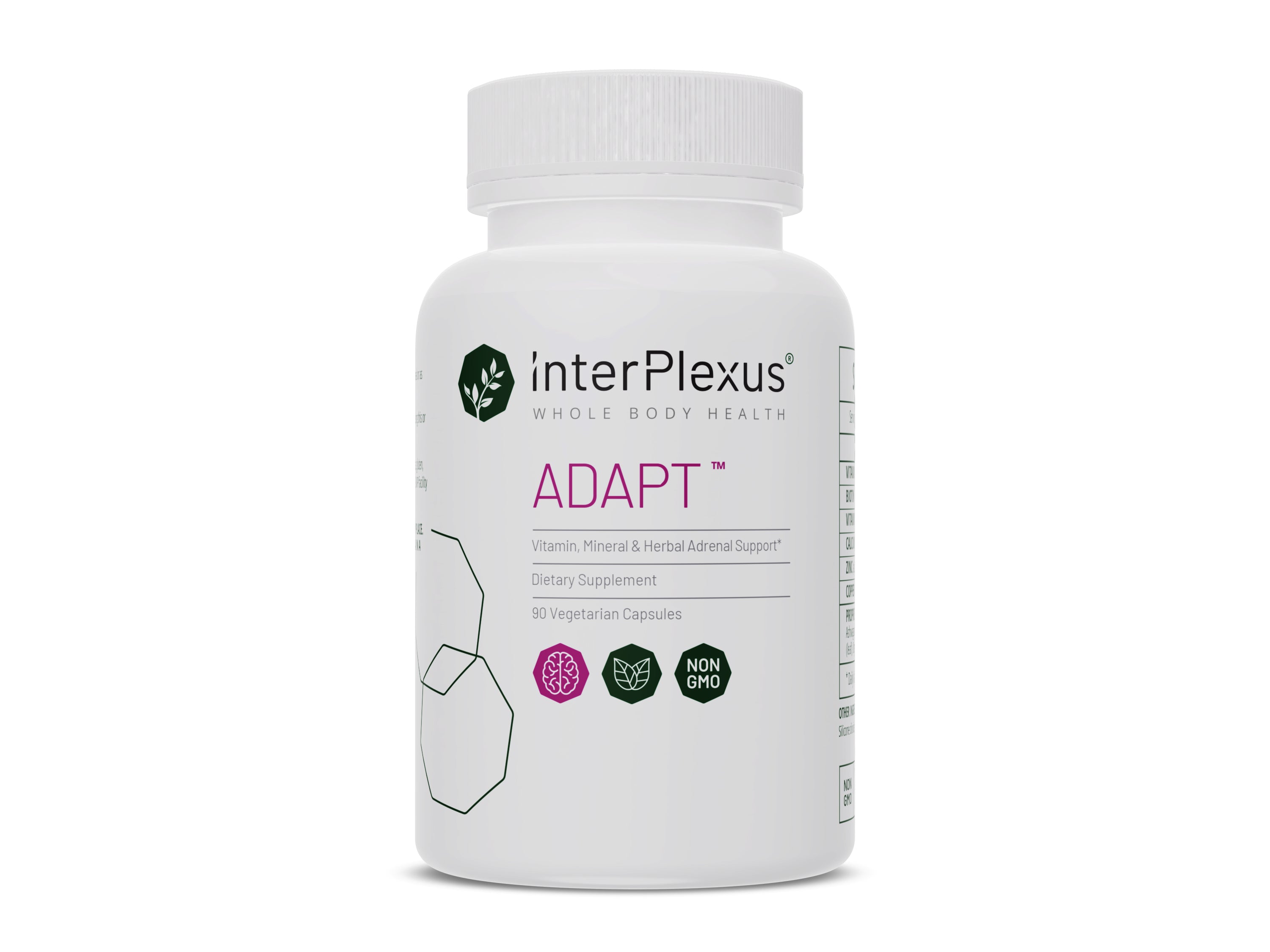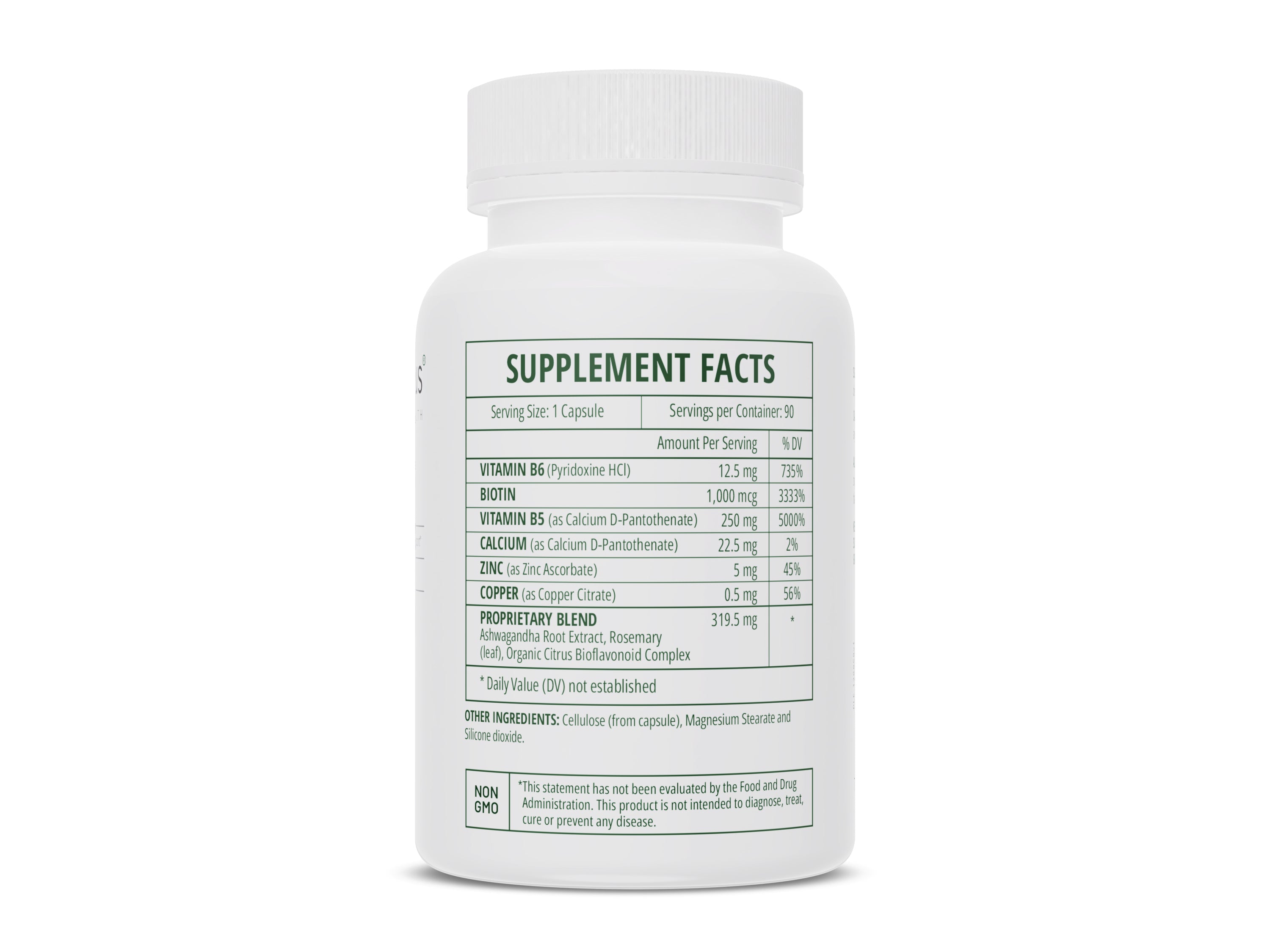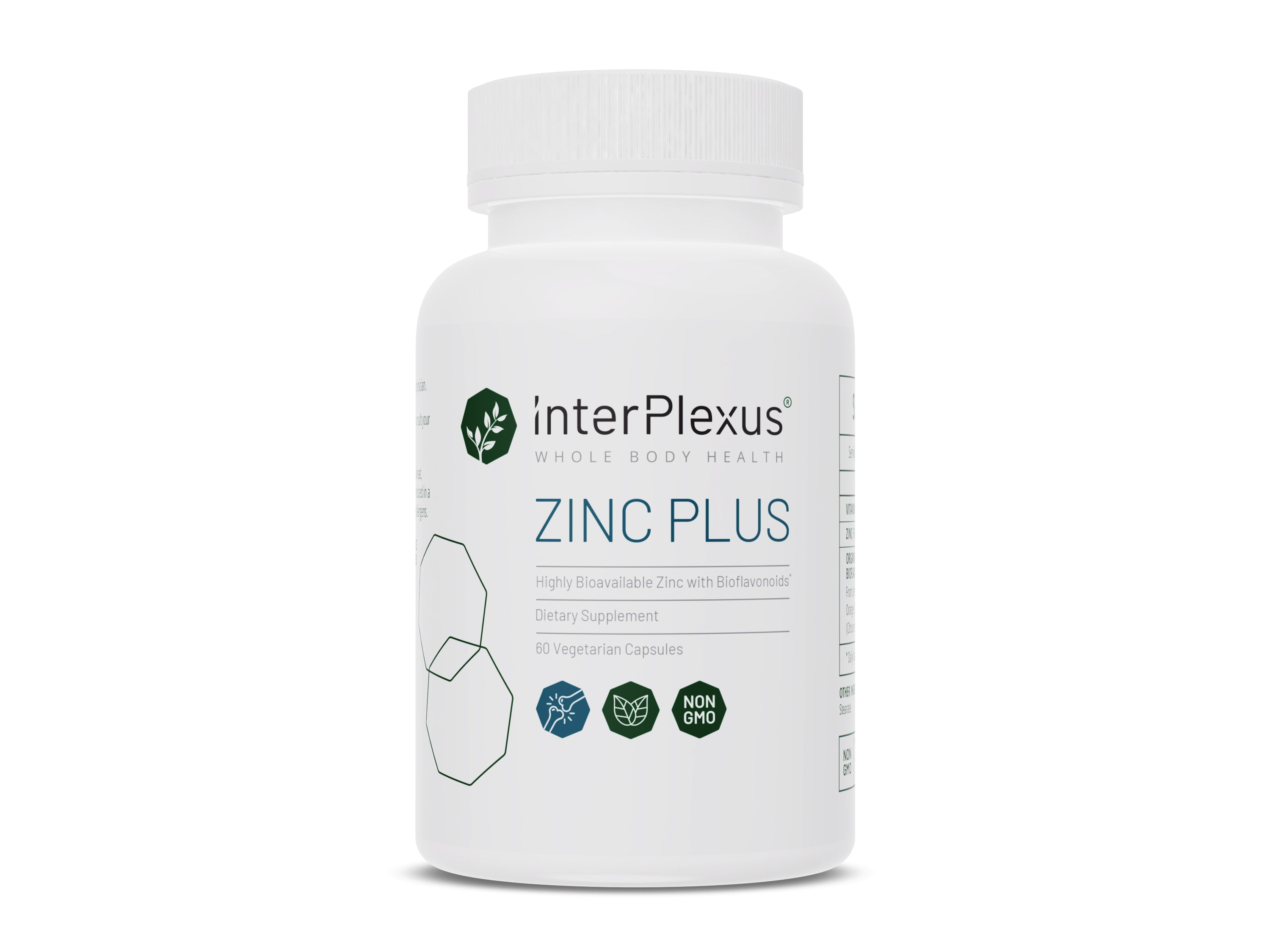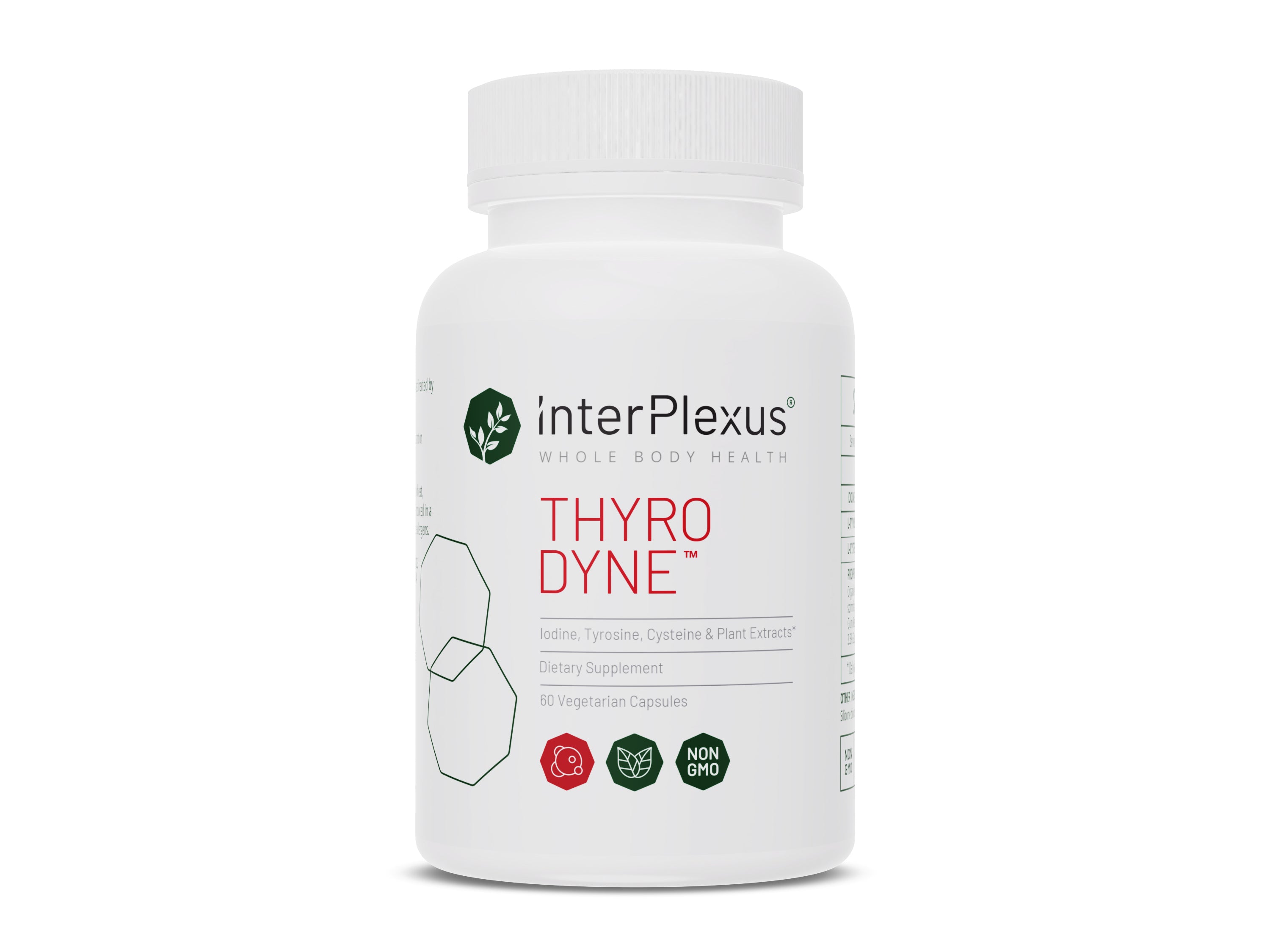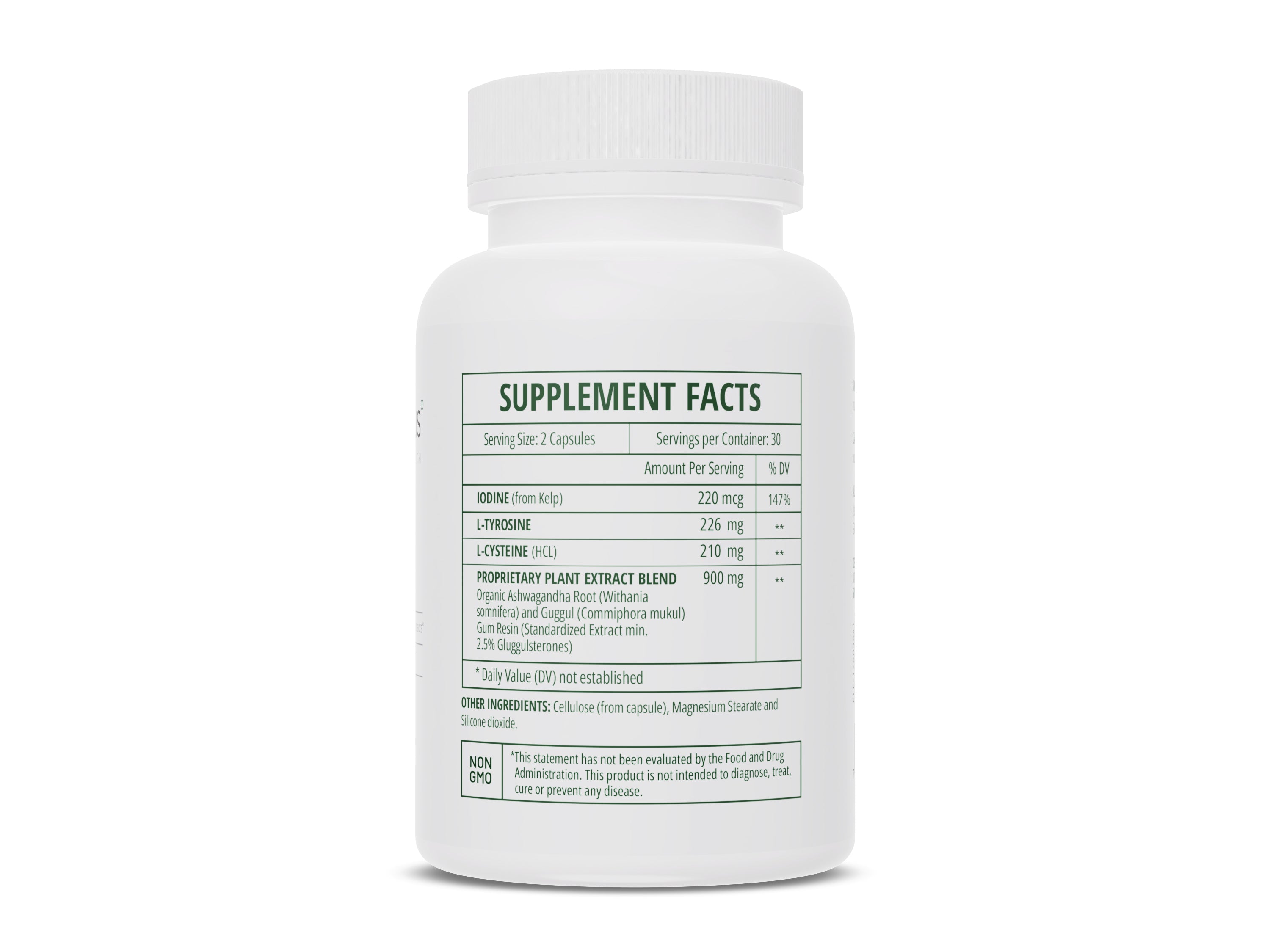Collections
Adrenal Support
What is Adrenal Support?
Adrenal support refers to the use of supplements and lifestyle changes to help support the proper functioning of the adrenal glands. These glands produce hormones that are important for managing stress, maintaining blood sugar levels, and regulating other bodily functions. Some common ways to support the adrenal glands include taking herbal supplements, practicing stress-reduction techniques, and eating a healthy diet. It is important to speak with a healthcare professional before starting any new supplement regimen to ensure it's safe for you and won't interact with any other medications you may be taking.
The Importance of Adrenal Support
The adrenal glands, sometimes called suprarenal glands, are small organs located above the kidneys. They are part of the endocrine system. The endocrine system is one of your body’s ten major organ systems. It is a complex network of glands and organs that control your body’s metabolism, energy level, reproduction, growth, and development. The endocrine system is also responsible for mood regulation and responding to stress or injury.
Adrenal Glands
The job of the adrenal gland is to react to stress by releasing hormones like cortisol (the stress hormone), epinephrine (adrenaline), and aldosterone. These hormones are part of your body’s natural “fight or flight” response and are used to increase your heart rate and blood pressure in response to stress. This response to stress is normal and healthy as your body tries to balance your metabolism, blood pressure, and immune function while under stress .
Adrenal Disorders
Adrenal function may become impaired for a variety of reasons. This dysfunction can cause a number of disorders, including:
- Adrenal Insufficiency (otherwise known as Addison’s disease)
- Cushing’s Syndrome
- Cushing's Disease
- Congenital Adrenal Hyperplasia
- Hyperaldosteronism
- Pheochromocytoma
- Adrenal Fatigue
It is important to consult with your healthcare provider about treatments, which may include medication, nutritional supplementation, lifestyle changes, and/or dietary changes, for any adrenal disorder.
Adrenal Insufficiency (Addison’s disease)
Adrenal insufficiency is a disorder characterized by a lack of hormone production and can include symptoms like abdominal pain, depression, nausea, dizziness, and others. Adrenal insufficiency is a serious medical condition and should be diagnosed and treated by a medical professional. Treatments for adrenal insufficiency often include hormone replacement therapy administered by your healthcare provider. If you think you have adrenal insufficiency, contact your healthcare provider immediately.
Adrenal Fatigue
Exposure to long-term mental, emotional, or physical stress, even at low levels, can be bad for your adrenal health. This prolonged exposure to chronic stress may cause your adrenal glands to struggle to keep up with the demand and underperform. This low performance is often referred to as adrenal fatigue. Symptoms of adrenal fatigue may include trouble sleeping, low energy levels throughout the day, trouble waking up in the morning, and sugar and salt cravings. Adrenal support supplements and other stress management techniques may help optimize your cortisol levels and reduce the effects of adrenal fatigue.
InterPlexus’ unique formulations are designed to restore and optimize adrenal function to keep your body healthy and give you peace of mind. InterPlexus’ adrenal support products may support healthy sleep, regulate blood sugar levels, improve immune function, increase stamina and sustain energy levels, balance hormones, stabilize mood, and maintain an appropriate stress response.* Which, in turn, will allow you to perform your best and ease your mind.
View collection
All Supplements
InterPlexus offers supplements across six different categories to better support your health and wellness needs. For more infomation on these categories and how our unique products help to support your body's systems please see our Collections page.

Gastrointestinal Support
What is Gastrointestinal Support?
Gastrointestinal support refers to the various ways in which the digestive system, which includes the stomach and intestines, is maintained and kept healthy. This can include things like taking probiotics (good bacteria) to help with digestion, eating a diet that is high in fiber, and avoiding foods that may cause irritation or inflammation in the gut. It can also involve taking medications or supplements to treat specific digestive issues, such as acid reflux or constipation. Overall, the goal of gastrointestinal support is to promote the proper functioning of the digestive system, so that food is broken down and absorbed properly, and waste is eliminated efficiently.
The Importance of Gastrointestinal Support for Better Health
Gastrointestinal support is important because a healthy digestive system is essential for overall health and well-being. The digestive system is responsible for breaking down food, absorbing nutrients, and eliminating waste. When the digestive system is not working properly, it can lead to a variety of health problems, such as nutrient deficiencies, constipation, diarrhea, and even more serious conditions like irritable bowel syndrome (IBS) and inflammatory bowel disease (IBD). Additionally, poor gut health is also linked to a higher risk of chronic diseases such as obesity, type 2 diabetes, and certain types of cancer.
Having a well-functioning digestive system can also improve mental health, as the gut and the brain are closely connected. A healthy gut can lead to better mood, energy levels and cognitive function.
Overall, maintaining proper gastrointestinal support is essential for maintaining good health and preventing a wide range of health problems.
The Digestive System
The Gastro-Intestinal (GI) tract or digestive system includes all of the organs that food and liquids travel through after they are ingested. The GI tract is composed of the mouth, the esophagus, the stomach, the small intestine, the large intestine, and the anus. It is part of the larger organ system known as the digestive system. The digestive system is one of your body’s ten major organ systems and is composed of the GI tract (also known as the digestive tract) as well as the pancreas, liver, and gallbladder.
The GI Tract
The GI tract is responsible for the digestion of food, the absorption of water and nutrients, and the elimination of waste. Its function is to identify which nutrients, including vitamins, minerals, proteins, fats, and carbohydrates, obtained from food and water to absorb and which to discard as waste. Once absorbed in the GI tract, the nutrients can then be used or stored by your body. Digestion is important because it provides the nutrients necessary for the production of energy, growth, and self-repair.
The GI Tract and Digestion
The GI tract has a few tools with which it digests and breaks down food. One tool is mechanical digestion, which is chewing or masticating. Chewing mechanically breaks up larger pieces of food into smaller, more easily digestible pieces. Chewing is an important first step in the digestion process.
Another tool your body can use to digest food is chemical digestion. Chemical digestion occurs when your body uses stomach acid and digestive enzymes to break down food at a molecular level. The stomach acid and digestive enzymes break the bonds between molecules, further breaking down food and speeding up the digestion process. These enzymes include Amylase, Lipase, Maltase, Lactase, Sucrase, and Protease.
In addition to these mechanical and chemical processes performed by the GI tract, your body has a final tool at its disposal. This tool is the gut microbiome. The bacteria and archaea present in the GI tract are often referred to as “gut flora” or the "gut microbiome." These bacteria and archaea aid in the digestion of food by helping to break it down, and they also produce enzymes which in turn further aid digestion.
The Importance of Digestion
Proper digestion is essential for the absorption of nutrients. If your body cannot fully perform digestion, it won’t be able to completely absorb the nutrient molecules and gain the proper fuel it needs to function optimally. When the GI tract does not function properly, whether due to diseases or disorders, there can be wide-ranging effects as these illnesses interfere with the absorption of nutrients and the elimination of waste.
Gastrointestinal Disorders
Diseases and disorders can occur for various reasons, including an imbalanced gut microbiome, enzyme insufficiency, cancer, and various other causes. Many of these disorders are serious medical conditions that should be diagnosed and treated by a medical professional. If you think you have any of these disorders, please contact your medical provider immediately.
Gastrointestinal disorders and diseases can include:
- Diverticulitis
- Gastritis
- Pancreatitis
- Cholecystitis
- Cirrhosis
- Hepatitis
- Liver cancer
- Colon cancer
- Irritable bowel syndrome
- Ulcerative Colitis
- Crohn’s disease
- Celiac Disease
- Gastroesophageal Reflux Disease
- Peptic Ulcer Disease
Symptoms of Gastrointestinal Disorders and Diseases
While these disorders and diseases vary in their cause and severity, they can share common symptoms due to the nature of the GI tract.
These symptoms can include:
- Fever
- Nausea
- Vomiting
- Bloating
- Abdominal pain
- Bowel changes, such as constipation or diarrhea
While some of these symptoms can be treated with at-home remedies, it is suggested that you seek medical attention if these symptoms become chronic or severe.
The Benefits of Supplementation
Supplementation may help to support your body’s natural enzyme production and the gut microbiome. Supplements that help support your GI tract include digestive enzymes, prebiotics, probiotics, postbiotics, and herbal extracts.
Using the right supplement can make all of the difference. Many people use prebiotics and probiotics to fortify or regulate the gut microbiome, but this may not be enough to help support your GI tract. For example, many people also suffer from enzyme insufficiency, which occurs when the body does not produce enough enzymes or the right enzymes. In these cases, individuals may benefit from the use of digestive enzymes or herbal extracts. Herbal extracts can promote the production of enzymes in those individuals who suffer from enzyme insufficiencies.*
Rebalance and restore optimal digestive function with Gastrointestinal Support supplements from Interplexus, formulated to support healthy digestion, a balanced gut microbiome, intestinal integrity, and regular elimination.*
View collection
Multivitamins & Antioxidants
What is Multivitamin and Antioxidant Support?
A multivitamin is a supplement that contains a combination of different vitamins and minerals. These vitamins and minerals are essential for maintaining good health, and a multivitamin can help ensure that a person is getting enough of them in their diet. Some common vitamins and minerals found in multivitamins include vitamin C, vitamin D, vitamin E, vitamin K, vitamin B complex, folic acid, calcium, and iron. Multivitamins are not a replacement for a healthy diet, but they can be a useful supplement for people who may not be getting enough of certain nutrients from their diet alone.
The Importance of Multivitamin and Antioxidant Support
Vitamins are important because they play a vital role in maintaining good health. They help our body to function properly by performing a wide range of functions including:
- Helping to convert food into energy
- Supporting the immune system
- Aiding in the formation of red blood cells
- Assisting in the production of hormones and neurotransmitters
- Supporting the health of our skin, hair, and nails
- Helping to protect our cells from damage caused by free radicals.
Each vitamin has its own specific function and deficiency in a specific vitamin can cause a specific symptoms and health problems. For example, a deficiency in Vitamin C can lead to scurvy, while a deficiency in Vitamin D can lead to weak bones (osteomalacia or rickets). Taking a multivitamin supplement can help ensure that a person is getting enough of all the essential vitamins and minerals, but it is always best to try to get vitamins and minerals from a healthy diet rich in fruits, vegetables, lean proteins, and whole grains.
Multivitamins
Vitamins are substances that our bodies need to develop and function normally. Your body requires thirteen vitamins daily: A, C, D, E, K, and the eight B vitamins. Other than vitamin D and vitamin B3 (niacin), your body cannot make vitamins and must absorb them from food or supplements.
Multivitamins are supplements containing a combination of vitamins normally found in foods and other sources. Supplementation with individual vitamins or a comprehensive multivitamin could address dietary insufficiencies, treat specific vitamin deficiencies, and enhance energy levels.
Antioxidants
Antioxidants are substances that can protect the body by neutralizing free radicals. We consume antioxidants via food and beverages, especially coffee, tea, fruits, and vegetables. Some vitamins and minerals, including vitamin C, vitamin E, zinc, selenium, and copper, serve as antioxidants.
What are Free Radicals?
Free radicals are unstable molecules that can damage cell membranes and DNA while increasing the risk of developing chronic disease, including cancer, diabetes, and high blood pressure (hypertension). While free radicals are highly damaging to the cells in your body, they are everywhere and cannot be avoided. Your body even generates free radicals in response to your environment and other pressures. Common environmental factors, including UV rays, air pollution, tobacco smoke, and byproducts of your body's cellular processes, contribute to the number of free radicals in your body.
Although free radicals are inescapable, an adequate supply of antioxidants may disarm them. The body naturally produces powerful antioxidants, including glutathione and alpha lipoic acid; however, many foods are also good sources of antioxidants.
Antioxidants can be procured from foods that are high in vitamin C and vitamin E and compounds called phytochemicals or phytonutrients, which are abundant in plants.
Examples of beneficial phytochemicals include:
Carotenoids
- Lutein in kale
- Lycopene in tomatoes
- Flavanols in cocoa
- Quercetin in apples and onions
- Proanthocyanidins in grapes
- Hesperidin in citrus fruits
Health Benefits
There are many health benefits to be gained by supplementing your diet with multivitamins and antioxidants. These benefits include supporting your cellular defenses, providing your body with necessary nutrients, and defending against adverse health effects. For example, combining vitamin B6, vitamin B12, and folate may reduce the risk of heart disease and stroke.
InterPlexus' high-quality, bio-active multivitamin and antioxidant blends provide results you will feel using formula combinations that work together to increase absorption, and reduce adverse health effects. Promote your wellness using our multivitamin and antioxidant products to help sustain cellular defenses and provide nutritional factors that fight free radicals. Directly stimulate the body’s antioxidant systems to protect cells from the ravages of oxidative stress.*
View collection
Musculoskeletal Support
What is Mineral and Musculoskeletal Support?
Mineral support refers to the process of providing the body with the necessary minerals it needs to function properly. Minerals are essential nutrients that are found in foods and are needed in small amounts to maintain good health. Examples of minerals include calcium, iron, zinc, and magnesium. These minerals play important roles in many bodily functions, such as building strong bones, carrying oxygen in the blood, and supporting the immune system. Without enough of these minerals, a person may develop health problems such as anemia, osteoporosis, or a weakened immune system. Eating a balanced diet that includes foods rich in minerals is one way to ensure that the body gets the mineral support it needs.
The Importance of Mineral and Musculoskeletal Support
Mineral support is important because minerals are essential nutrients that play important roles in many bodily functions. Some examples of the functions that minerals support include:
- Building strong bones and teeth: Calcium, phosphorus, and fluoride are all needed for healthy bones and teeth.
- Carrying oxygen in the blood: Iron is needed to make hemoglobin, a protein in red blood cells that carries oxygen to the body's tissues.
- Supporting the immune system: Zinc is important for the function of white blood cells, which help the body fight off infections.
- Helping muscles contract and relax: Magnesium, calcium, and potassium are all needed for healthy muscle function.
- Helping to convert food into energy: Chromium and selenium are needed for the proper metabolism of carbohydrates and fats.
- Helping to make hormones and enzymes: iodine, chromium, and selenium are needed for the production of hormones and enzymes.
A lack of minerals can cause various health problems, such as anemia, osteoporosis, and weakened immune system, and other related issues. Eating a balanced diet that includes a variety of foods rich in minerals is the best way to ensure that the body gets all the minerals it needs.
Musculoskeletal System
The musculoskeletal system is composed of bones, joints, muscles, tendons, ligaments, cartilage, and connective tissue. This system supports movement and body weight and provides the framework to which soft tissues like muscles, blood vessels, and organs attach. Proper nutrition, exercise, and a healthy weight are required to maintain a healthy musculoskeletal system.
Musculoskeletal Support
Proper nutrition, especially mineral support, is essential for a properly functioning musculoskeletal system; after all, bones are composed of minerals - calcium, phosphorus, and magnesium - and muscle contractions are controlled by calcium and magnesium.
While diet plays the largest role, it does not always provide the necessary amounts and quality of minerals required for an optimally functioning musculoskeletal system. Therefore, a mineral dietary supplement may be needed, especially in cases of skeletal or muscular injury, disease, or even congenital anomalies.
Minerals
Minerals are those chemical elements found in foods that our bodies use as nutrients for optimal development and function. Calcium, magnesium, zinc, sulfur, and potassium are a few of the essential minerals required by the body. Minerals can be broken down into two categories, macrominerals and trace minerals.
Macrominerals are minerals of which our bodies require more than 100 milligrams per day and include: calcium, phosphorus, magnesium, potassium, sodium, chloride, and sulfur, among others.
Conversely, trace minerals are minerals needed in smaller amounts and include iron, copper, iodine, zinc, selenium, fluoride, cobalt, and manganese.
Although we need smaller amounts of trace minerals, they are no less important, and both categories are essential for good health and proper function of the brain, the heart, muscles, and bones. That is because minerals are required for much more than just bone health. They contribute to the health of the nervous system by maintaining healthy nerve function and the cardiovascular system by controlling inflammation and regulating muscle tone.
Minerals are amazing - they support normal electrolyte levels, an optimal energy level, fluid balance, and the metabolic pathways. Minerals are also required for the production of hundreds of enzymes and hormones in the body. As a result, a mineral deficiency may be hazardous to your health in more ways than just contributing to low bone density. This is why it is important to ensure you receive and absorb the proper amount of minerals each day.
Mineral Absorption
Ingesting the suggested daily value of minerals may not be enough to ensure proper musculoskeletal health because other nutrients and even certain foods may limit or suppress the absorption of minerals as they compete for the same pathways in the body.
For example, foods high in oxalic acid (oxalates), including spinach, rhubarb, and beet greens, may block calcium absorption. Additionally, foods high in sodium and phytic acids, such as beans, Brazil nuts, and hazelnuts, may also block the absorption of calcium.
Combining vitamins and minerals is a great way to combat this problem and may increase the absorption of minerals by the body. For example, when calcium, magnesium, and vitamin D are taken together, they can increase the amount of calcium absorbed by the body.
Minerals and Musculoskeletal Health
Most people don't give much thought to their musculoskeletal health until they are in their later years. And unfortunately, most usually wait until a problem arises before they begin to consider the health of their musculoskeletal system. For example, many individuals assume they are ingesting enough calcium, but it isn't until the diagnosis of osteoporosis or osteopenia that bone density and calcium absorption become a priority.
Men and women over 50 should consider taking mineral supplements due to the risk of osteoporosis. Optimal nutrition could delay or prevent osteoporosis. Health guidelines also recommend that all women over 65 and men over 70 discuss osteoporosis screening with their doctor.
It is important to remember minerals are not only some of the best supplements for bone health but are also essential for the proper function of muscles, the brain, and the cardiovascular system. As a result, all adults and children could consider adding mineral supplements to their daily regimen.
Support one of the most important foundations of health – nutrition – with InterPlexus' high-quality, bioactive minerals with advanced delivery systems to improve cellular uptake for healthy, strong bones and muscles.*
View collection
Probiotics & Postbiotics
What are Probiotics and Postbiotics?
Probiotics are live microorganisms that are similar to the beneficial microorganisms found in the human gut. They are often called "good" or "helpful" bacteria because they help keep the gut healthy. Postbiotics are the compounds produced as a result of probiotic activity. Probiotic and Postbiotic support refers to the use of probiotics and postbiotics to help support the balance of good bacteria and healthy compounds in the gut. This can be done by consuming probiotic-rich foods or by taking probiotic and postbiotic supplements. By maintaining a healthy balance of gut bacteria, probiotics can help support digestion, boost the immune system, and even improve mood and mental health.
The Importance of Probiotics and Postbiotics
Probiotics and Postbiotic compounds are important because they help maintain the balance of good bacteria in the gut. This balance is crucial for many functions in the body, including:
- Digestion: Probiotics can help break down food and absorb nutrients more efficiently. While postbiotic compounds help keep good gut flora healthy.
- Immune system: Probiotics can help strengthen the body's natural defenses against harmful bacteria and viruses. while postbiotics compounds help boost the immune system.
- Mental health: Probiotics have been linked to improved mood and cognitive function.
- Skin health: Probiotics may help to improve the skin's barrier function, which may help to reduce the incidence of eczema. while postbiotic compounds have been shown to improve the health of skin flora.
- Weight management: Studies have shown that the gut microbiome can influence weight management, probiotics can help balance the gut bacteria which can help with weight management.
Overall, probiotics play an important role in maintaining overall health and well-being.
Probiotics
The community of microorganisms that live on and in us is called the microbiome. It includes both good and bad bacteria. Good bacteria are involved in many helpful mechanisms, which include destroying disease-causing pathogens, digesting food, absorbing nutrients, and supporting the immune system. These good bacteria can be found in probiotics and contribute to our well-being.
Probiotics are combinations of live beneficial microorganisms, most of which are naturally found in the human body. Beneficial microbes are most commonly found in the large intestine of the gut as part of the gut microbiome. In addition, there are several other locations where these beneficial microbes can be found, including the mouth, skin, and urinary tract.
There are many different types of probiotics, and their benefits can vary depending on the strain of bacteria or yeast since different strains provide unique health benefits to the body. The most common bacterial probiotics belong to the Lactobacillus and Bifidobacterium families, while the most common type of yeast probiotic is Saccharomyces boulardii.
Beneficial bacteria and yeast aid in the digestion of food, regulate the immune system and defend against harmful bacteria. Healthy bacteria and yeast also help with the absorption of nutrients and reduce inflammation.
Conversely, certain unhealthy bacteria can cause an imbalance in the gut. This imbalance, also known as dysbiosis, may result in gastrointestinal maladies, such as diarrhea and intestinal bloating. In these cases, probiotics can restore the balance of healthy bacteria and may help address the discomfort. Probiotics are often recommended to target gastrointestinal symptoms such as gas, constipation, diarrhea, and bloating.
Some benefits of probiotics
- Support the body in maintaining a healthy balance of good and bad bacteria and; therefore, a healthy microbial community
- Re-establish a healthy condition after illness or distress
- Support the intestinal lining to prevent bad bacteria from entering the blood
- Enhance absorption of nutrients and improve digestion
- Promote oral health
- Support the immune system
- Reduce inflammation
Probiotics are not limited to dietary supplements but are also in several fermented foods that are rich in cultures of good bacteria. These include:
- Yogurt
- Fermented vegetables, such as sauerkraut and kimchi
- Kefir
- Kombucha
- Miso
- Natto
- Traditional Tempeh
- Apple cider vinegar with the "mother"
Postbiotic Supplements
Postbiotics are what remain after probiotics metabolize prebiotics in your body. Postbiotics can include nutrients like B vitamins, vitamin K, amino acids, and antimicrobial peptides that help slow down the growth of harmful bacteria. Furthermore, postbiotic substances also include short-chain fatty acids, which can help healthy bacteria flourish.
Difference between probiotics, postbiotics and prebiotics
- Prebiotics are non-digestible compounds found in food that act as the food for probiotics and selectively fuel the growth of certain microorganisms. Dietary fiber is the most common prebiotic. Foods rich in fiber break down, resulting in substances that promote probiotic growth, allowing them to thrive in the gut.
- Probiotics are the living microorganisms found in certain foods that are essential for good digestion.
- Postbiotics are the waste following the digestion of prebiotics by probiotics. Healthy postbiotics contribute to a better immune system and a healthier gut.
Postbiotic Benefits
Research shows postbiotics:
- Ease asthma and allergy symptoms
- Relieve constipation
- Boost the immune system
- Reduce digestive symptoms
- Support antioxidant activities
- Promote gut health
- Improve certain metabolic disorders, including non-alcoholic fatty liver disease (NAFLD), insulin resistance, diabetes, and obesity
- Fight infections and can act as a biofilm buster
- Support healthy skin and hair growth
Research continues to confirm the numerous short- and long-term health benefits of probiotic and postbiotic supplements.
Probiotic blends from InterPlexus are formulated with evidence-based strains to support optimal immune and gastrointestinal health, restoration of a balanced microbiome after antibiotic use, the prevention and enhanced clearance of infections, balanced mood, and a healthy metabolism.*
Many of the health-enhancing benefits of probiotics are facilitated by postbiotic metabolites. InterPlexus postbiotic supplements offer a unique array of over 400 biologically-active postbiotic nutrients, including short-chain fatty acids, peptides, polyphenols, vitamins, minerals, amino acids, nucleic acids, polysaccharides, and other micronutrients to support optimal immune system function, gastrointestinal health, and a healthy metabolism.*
View collection




